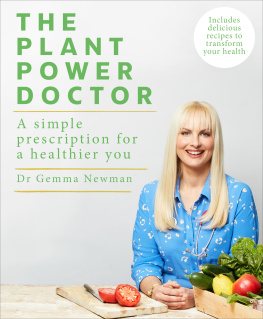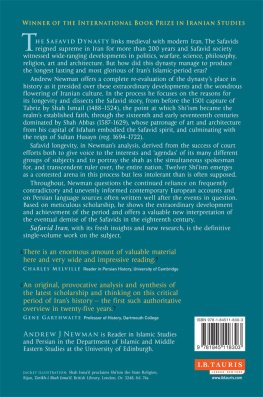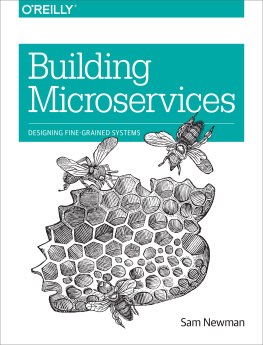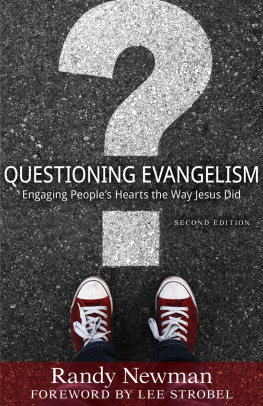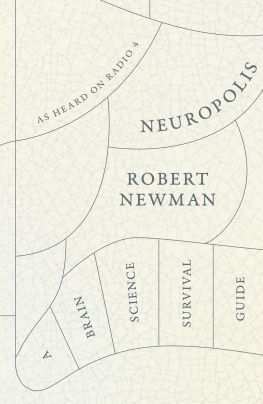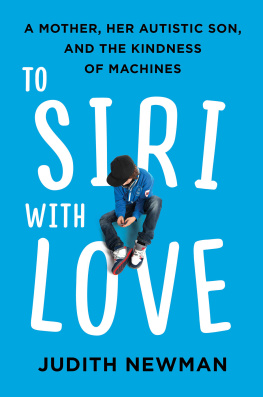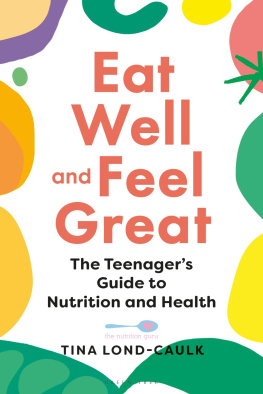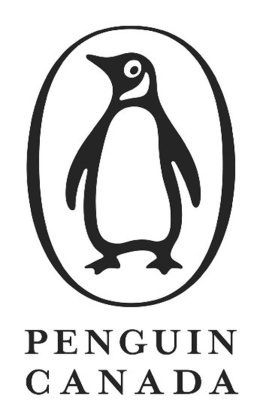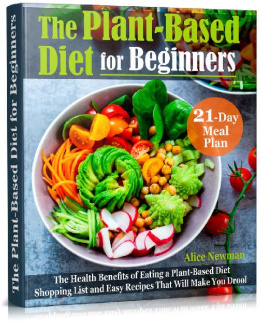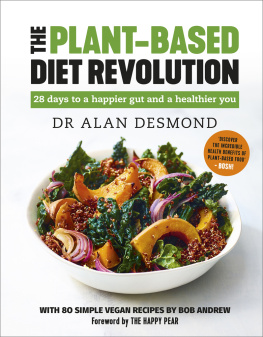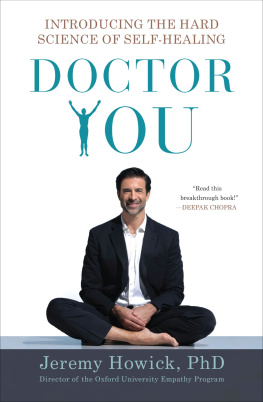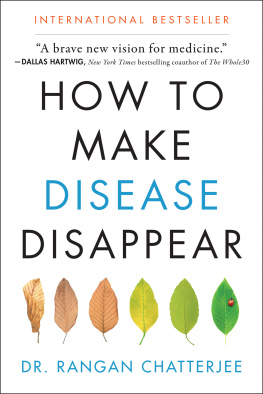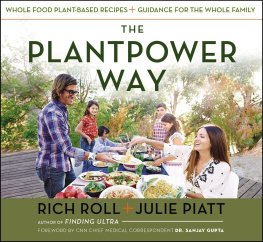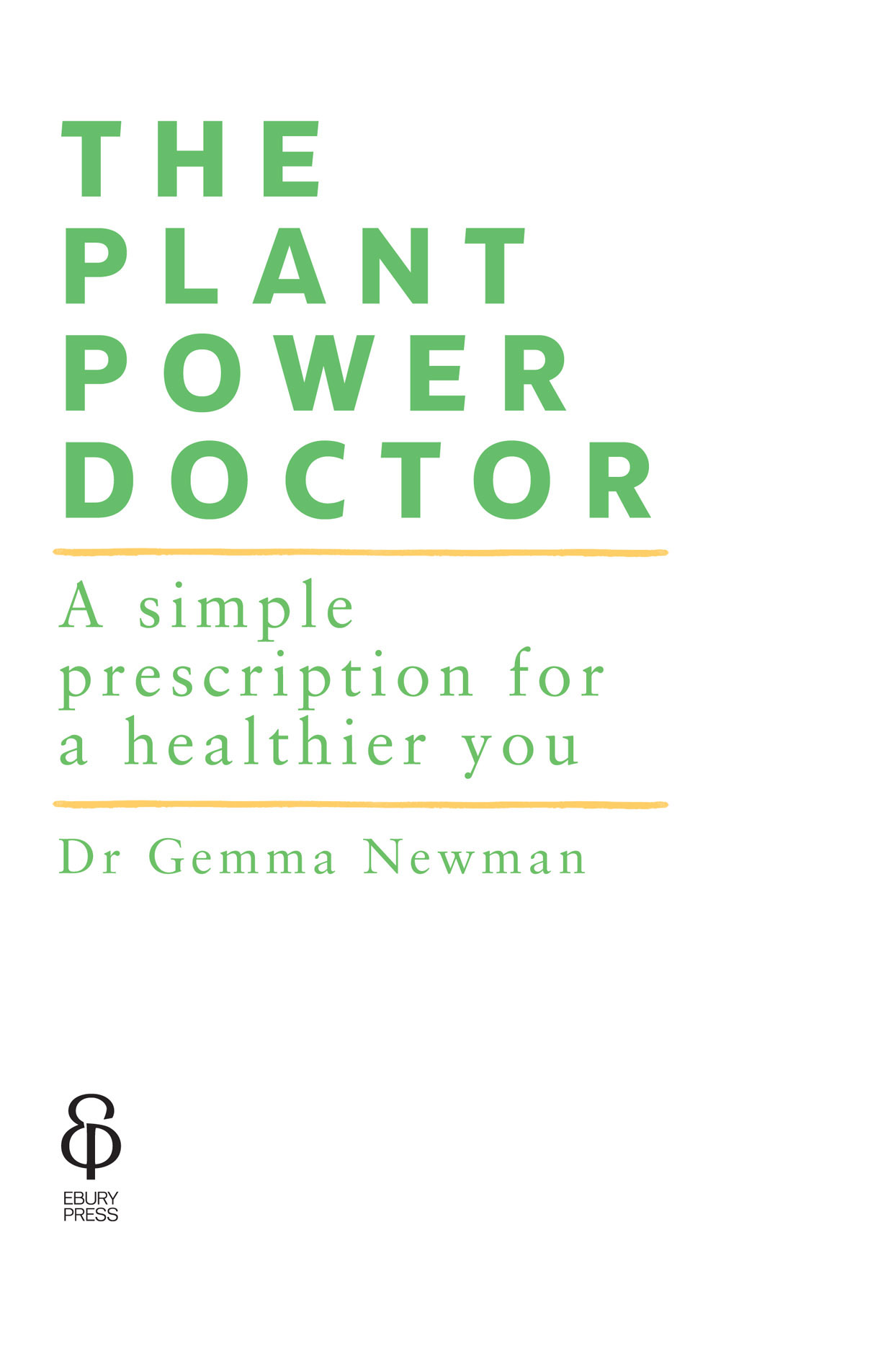
CONTENTS
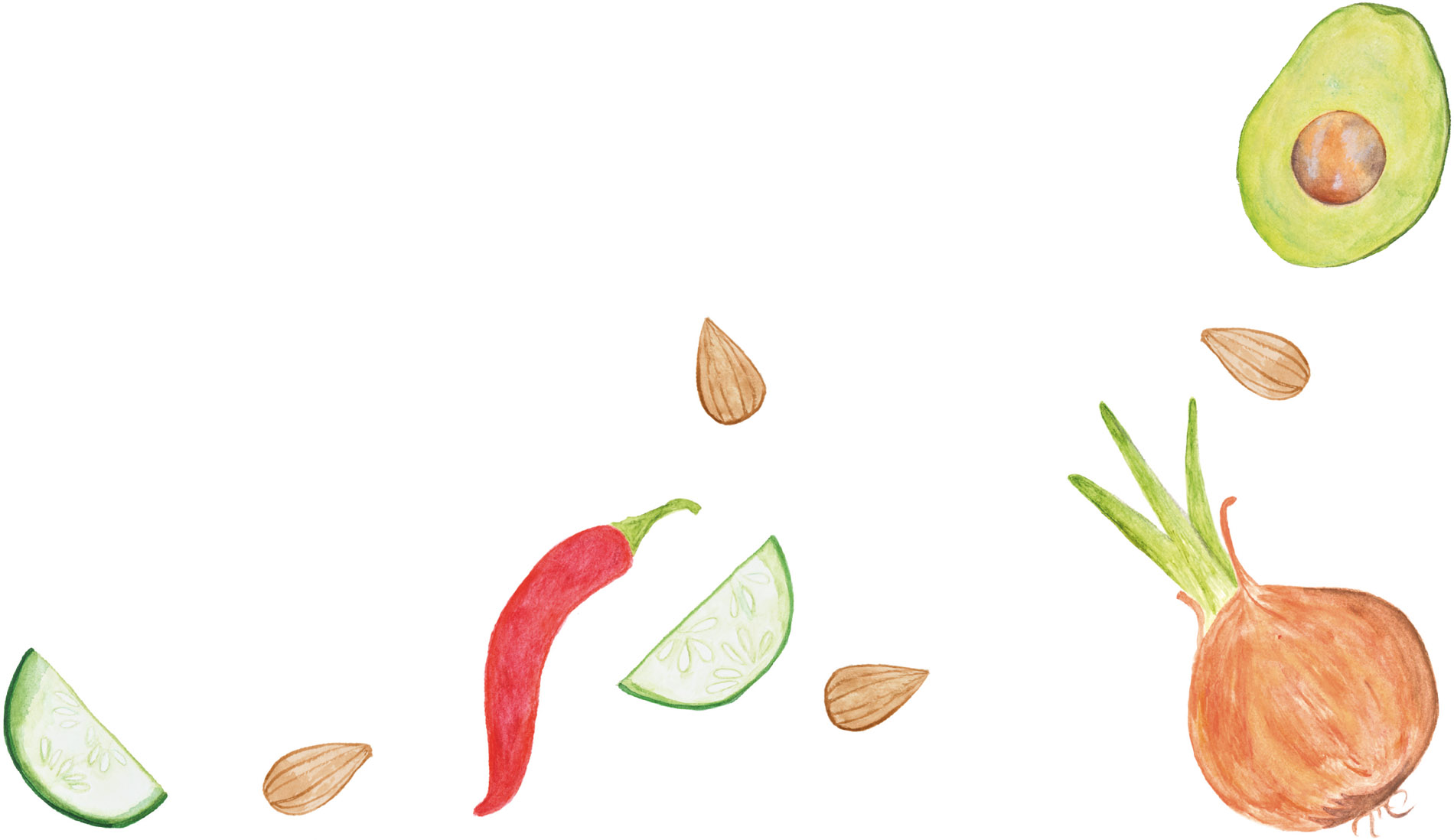
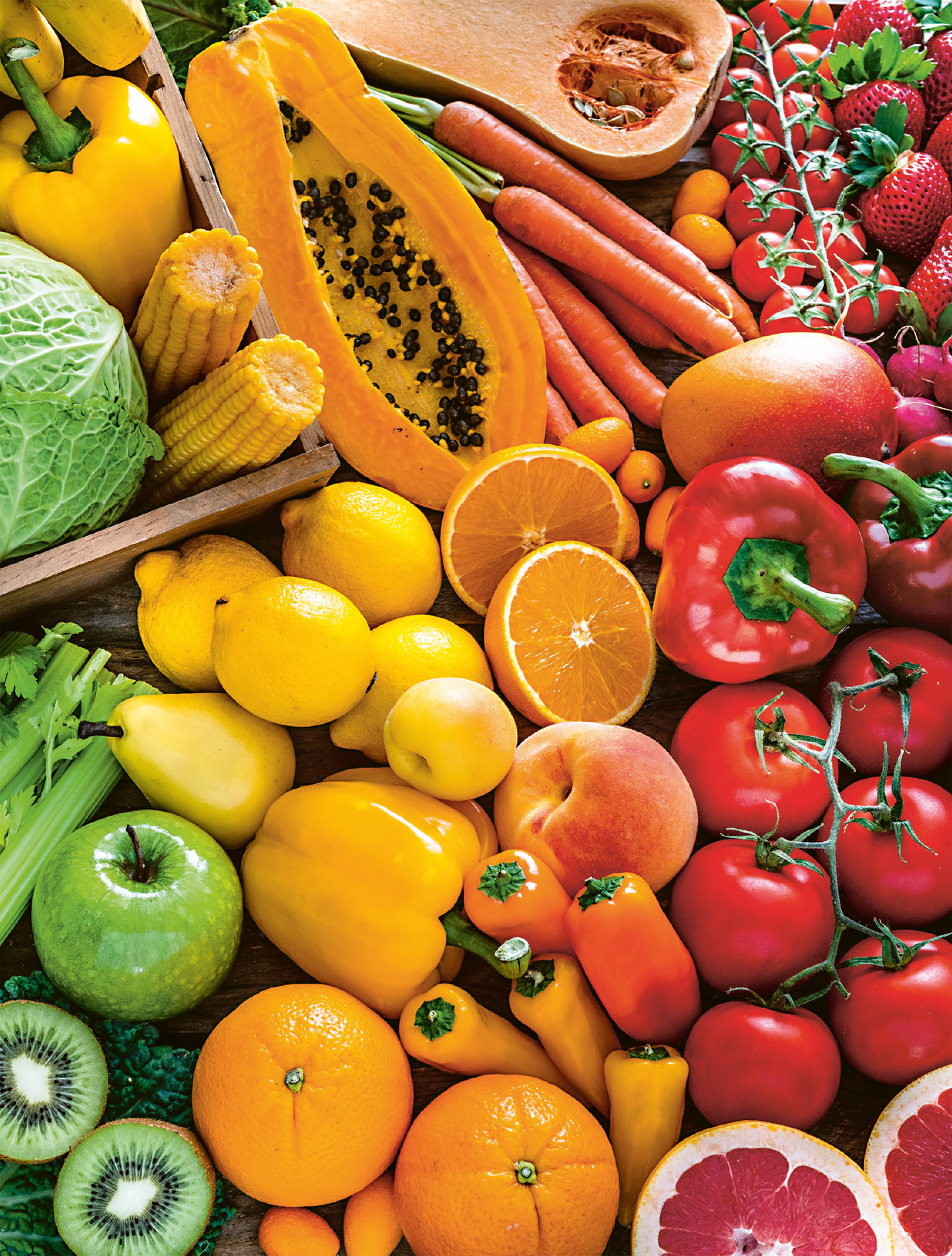
INTRODUCTION
If there was one simple change you could make to your lifestyle that would offer remarkable benefits for your physical and mental health, reducing your risk of many diseases and boosting your mood and well-being, while also helping the environment, would you like to know more? It is very easy when you know how:
EAT MORE PLANTS
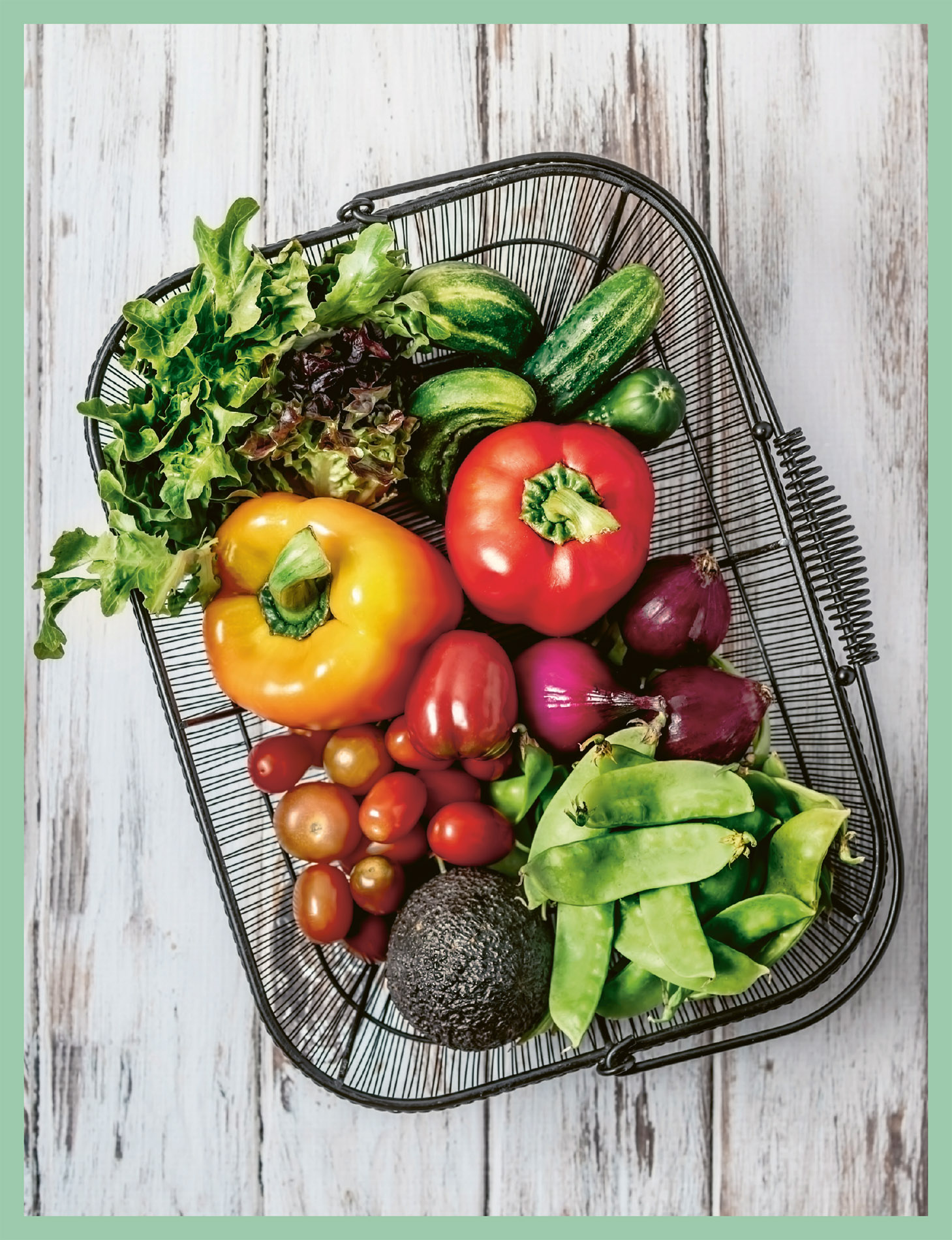
My name is Gemma and I have been a doctor for 17 years. Like most doctors, I went into my career with the aim of wanting to help people. I chose to become a GP because I love getting to know people, their families, the communities in which they live, and being by their side from cradle to grave. A friend once described Family Medicine to me as the branch of medicine where we get to save lives in slow motion and I think this sums it up perfectly. My ten-minute appointment time goes by in a flash; as well as diagnosing and treating illnesses, I aim to use this time to help my patients change their lives for the better. In the modern age, a time when communities and family links are becoming so rare, people come to the doctor for so much more than medical advice. They seek a friend, a confidante, a counsellor, and sometimes everything all at once. People let me into their lives and trust me and for that, I feel hugely privileged.
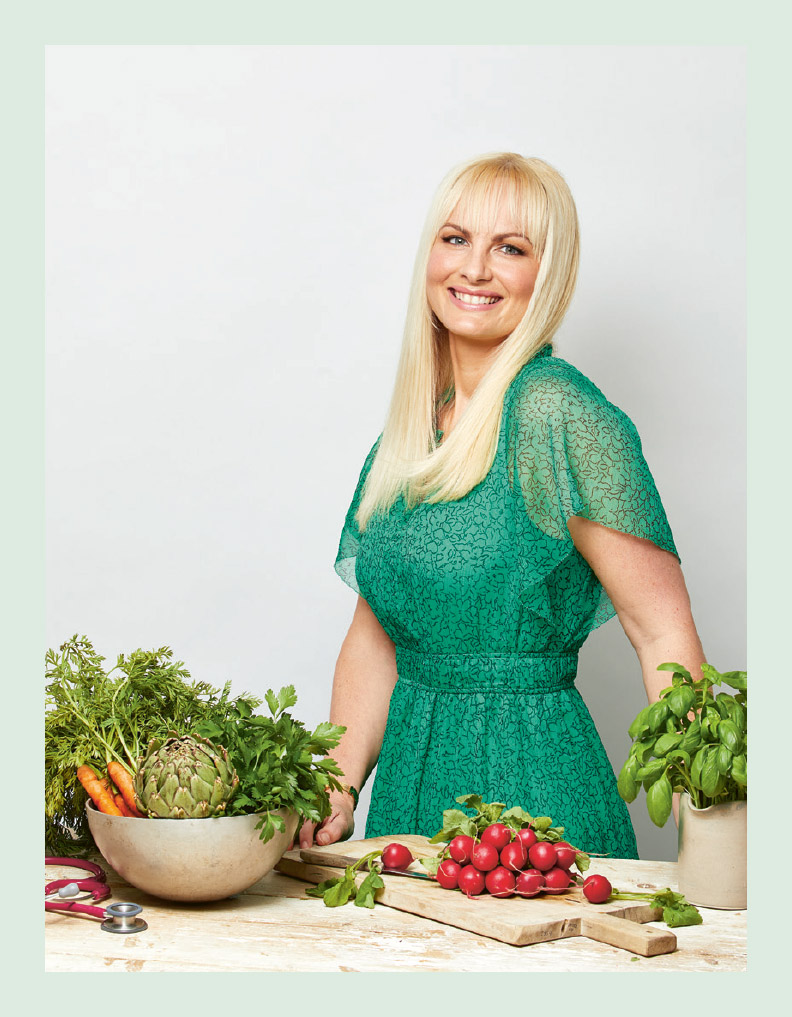
Over the years I have grown to understand how wonderful and yet how limited the medical model can be. When we have a car accident and need emergency surgery, or when we need a life-saving course of antibiotics for sepsis, the advances we have made in modern medicine are nothing short of extraordinary. But chronic diseases like back pain, depression, diabetes and heart disease? Treating them is much harder. Helping people deal with their diseases without a magic wand is a really difficult thing to do. In my profession, there are many patterns, guidelines, and templates in place to fix people and the question of what often becomes more important than the why. For me, the question why is this person suffering? is far more important than what is the diagnosis?
When I first started work as a doctor, I realised that while I had plenty of information and knowledge in my toolbox, it was still half empty. On many occasions, no matter how many packets of tablets or procedures I offered my patients, I was left with the unshakeable feeling that I had not helped them. Side effects and interactions of a variety of medicines especially in my elderly patients could sometimes do more harm than good.
I couldnt help but wonder if there was a better way.
I continued to study. I researched psychology, lifestyle medicine and ideas of holistic medicine. This is a form of medical care that looks at the whole person and how all aspects of their life are balanced, with the aim of not just finding a diagnosis and forming a treatment plan, but also noticing what may have led to that diagnosis. When someone is living with a chronic disease, its much trickier to understand why a symptom has arisen but its central to true healing. What food does a person eat? Who are they surrounded by? What do they do for a living? What is their social life like? How well do they sleep at night? All these questions are key when fitting the puzzle pieces of the why of disease into a picture we can recognise.
Medical training, by necessity, sometimes forces you to close your mind to the unknown. We are taught to be specific, to look for solid outcomes and to follow the evidence base. With all this structure and security, it can make a doctor feel very inadequate when their patient doesnt fit the box, and if their symptoms dont go away. So, I have had to look outside the diagnostic boxes I was taught to put people in and I made it my mission to be open to new ideas. I learned more about psychological interventions; ways I could support people change their mindset to facilitate change or growth, or to help them with their mental health, and I always wondered if there was a formula that could allow for true health and healing.
A CHANCE DISCOVERY
My journey to plant-based advocacy came about by chance. Several ago, my husband Richard was training to run the London Marathon and he was getting injury after injury with inflamed hips and ankles. Hobbling home after yet another thwarted training run, he was disappointed and wanted to be well enough to do his best, so he started looking into ways to help himself. He started to read about what ultra-runners do how did they manage to run for hundreds of miles at a time? He soon found that many of these runners had something in common: they ate a wholefoods plant-based diet.
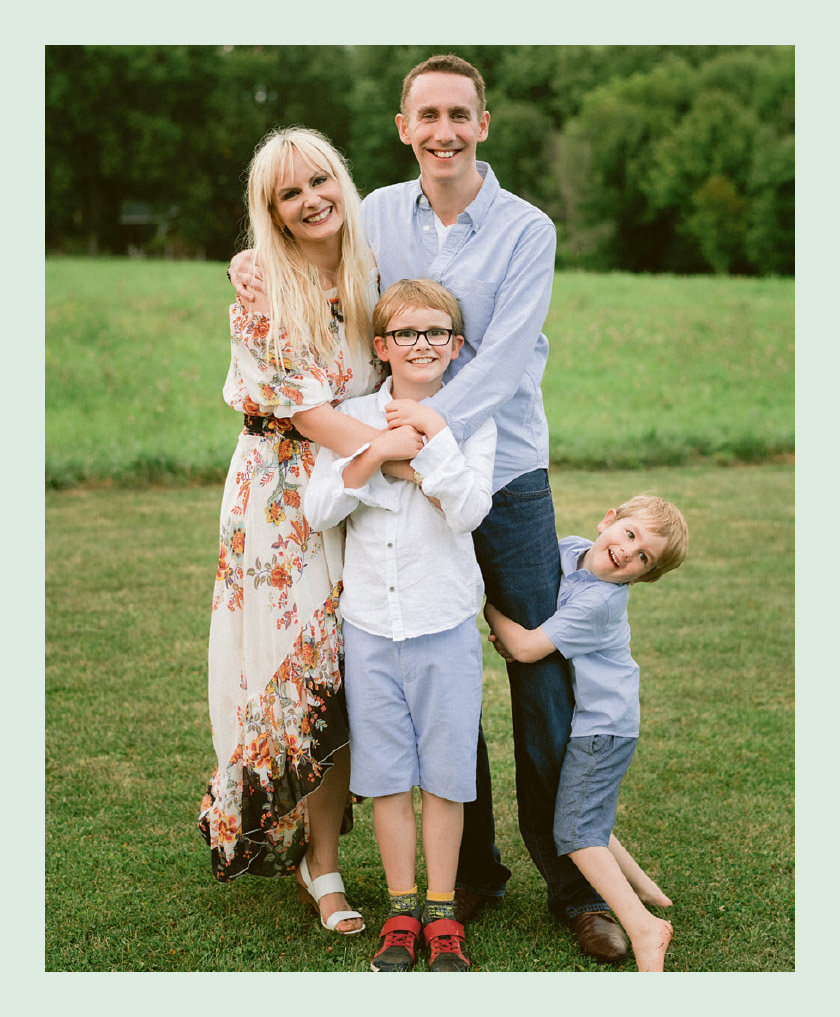
Im going to give it a try, he said to me one night. I had never looked into plant-based diets before and to be honest, my first instinct was one of horror: What will our friends say? Well be social outcasts! How are you supposed to get enough protein?! I had a suspicion that these athletes successes were more likely rooted in their technique than their food. But more importantly: Who would I share my favourite Friday night steak and chips with now?
Richard started eating more beans, rice, vegetables and fruit, and stopped eating meat, dairy, eggs, refined flour or sugar. He made huge progress with his training and stopped getting injured. He was training less and making better times. His inflamed ankles returned to normal. He could run a marathon before breakfast then look after the kids all day! I figured this must be some sort of coincidence but then I looked into the medical literature. The evidence for increasing the proportion of whole plant foods was compelling and persuasive. I felt quite embarrassed for being so sure that food had nothing to do with it; I could see the changes were really beneficial for him. I began to realise that my husband, who is not a medic, was teaching me something really valuable that I could add to my medical practice.
We grew up knowing that eating vegetables was a good thing, but not how good, or how transformative a plant-based diet could be. Why wasnt the message being spread more widely? Within six months on a wholefoods plant-based diet, Richard ran the marathon again, 1 hour and 10 minutes faster than his first attempt.
MY OWN HEALTH JOURNEY
As a young doctor in a high-pressure environment, like many new physicians, I often neglected my own health. I ate too much of the wrong kinds of foods, I often felt tired and my BMI was not in the healthy range. I wanted to feel better and have more energy to do my job. And I felt like a hypocrite. How could I tell people how to be healthier if I wasnt trying to be healthy myself?
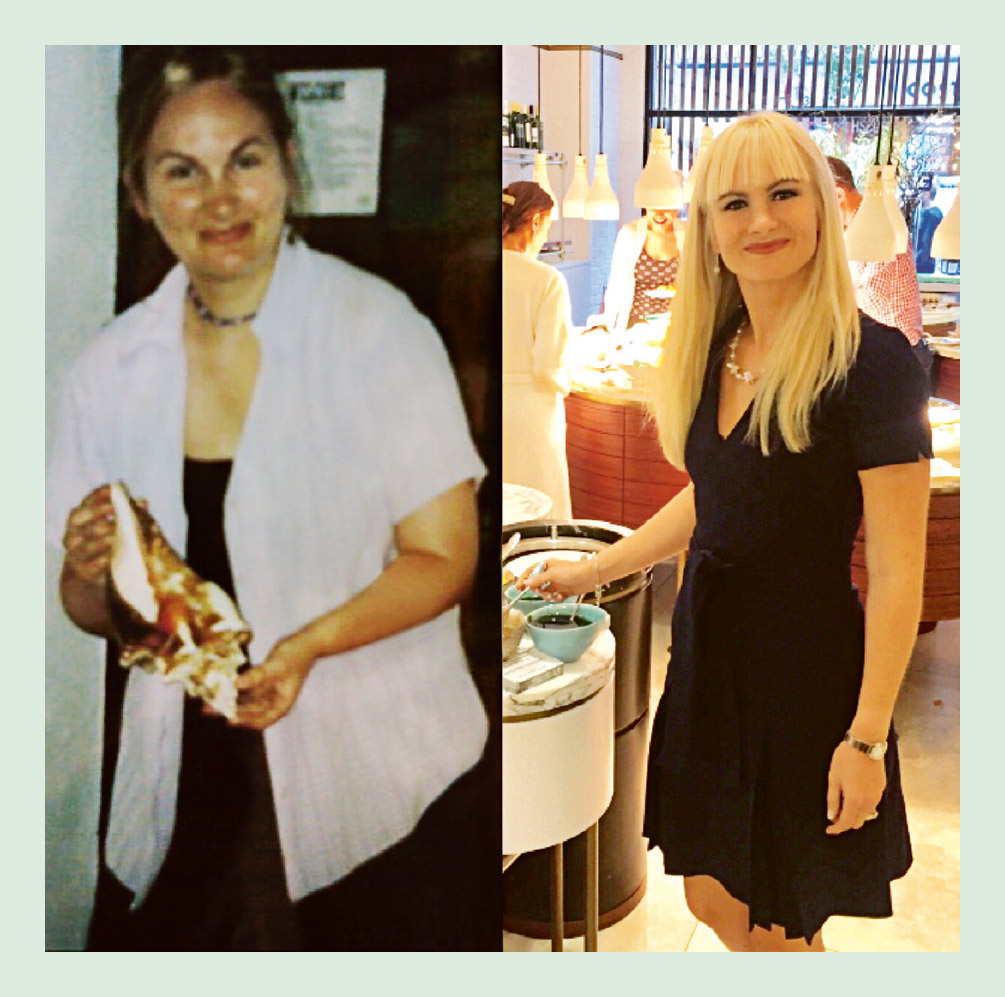
Having never considered the role of nutrition over and above avoiding deficiency, I naively assumed it was a simple case of eat less and move more. But how? At the time, the advice to cut carbs was rife within popular culture and among my colleagues, and so I adopted a low-carb diet in an attempt to lose body fat and feel healthier. I was eating a lot of chicken, fish and salads. I counted every calorie and threw myself into exercise. It worked. I lost a lot of weight and bought myself a new wardrobe. I felt pretty pleased with my efforts and new-found athleticism. From being the girl who would avoid sports at school at all costs, I was now running half marathons for the fun of it!
Next page
